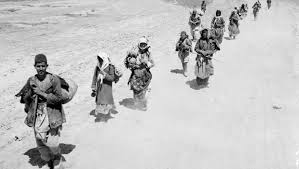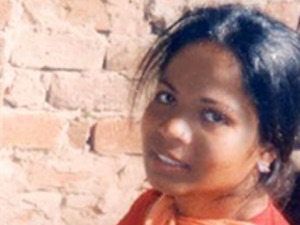 I am writing this on the day that Armenia is marking on the 100th anniversary of the terrible persecution, massacre and genocide of the Christian Armenians at the hands of the Moslem Turks. Not that the persecution was necessarily because they were Christians, but the way in which this benighted people behaved in the face of such atrocities was Christian, and a model for us all.
I am writing this on the day that Armenia is marking on the 100th anniversary of the terrible persecution, massacre and genocide of the Christian Armenians at the hands of the Moslem Turks. Not that the persecution was necessarily because they were Christians, but the way in which this benighted people behaved in the face of such atrocities was Christian, and a model for us all.
I have just read an article about this in the Barnabas Fund Magazine. They reproduced some experiences recorded shortly after this awful happening. These were put together by Sisag Manoogian in 2014, under the title above. Persons, driven from their homes, knew that survival was impossible behaved in a Christ-like way, praying for and loving their tormentors. Many of the stories – there must be thousands more – were from the memories of Turkish Muslims, some of whom doubtless turned to the Lord as a result of the conduct of these poor people.
Christians are still suffering for the Name, even in Britain, let alone the Middle East, Africa and North Korea.
One is reminded of the letter to Smyrna.
8And unto the angel of the church in Smyrna write; These things saith the first and the last, which was dead, and is alive;9I know thy works, and tribulation, and poverty, (but thou art rich) and I know the blasphemy of them which say they are Jews, and are not, but are the synagogue of Satan. 10Fear none of those things which thou shalt suffer: behold, the devil shall cast some of you into prison, that ye may be tried; and ye shall have tribulation ten days: be thou faithful unto death, and I will give thee a crown of life. 11He that hath an ear, let him hear what the Spirit saith unto the churches; He that overcometh shall not be hurt of the second death. (Rev 2:8-11)
Here are some extracts:
- Some ferocious gendarmes marveled when seeing men and women, even children, instead of trembling in the presence of death, show calm and dignity, and instead of cursing, pray for the forgiveness of their murderers. In their defenselessness they tried to defend the weaker ones: in their hunger they shared their last piece of bread with the poorest.
- The pastor of the Syrian church in Ourfa saw thousands of women and children, who were exhausted with the journey, and so had to spend one night on the ground there, and march on next morning. He said nearly all were hungry, thirsty, and literally naked. Some of them found pieces of charcoal and wrote on the rocks, ‘As Jesus did not deny us, do not deny Him: We have not denied Him, follow us’.
- These women were asked to repeat a short sentence after the Turkish teacher, or lift up their testimonial finger to show that they were willing to accept Islam, which meant they could stay free in their homes, but they refused, choosing rather to suffer and die in the desert.
- The Armenians gave up everything precious, but clung to their Bibles. They thanked God first before they drank water after five days‘ hot journey in the desert without anything to quench their thirst. Innocent victims showed wonderful peace and offered earnest prayers for the salvation of Turks and Turkey, before the rope was around their necks to hang them.
- On one occasion Elmas saw a line of Armenian children being systematically beheaded by Turkish soldiers. Terrible thunder and lightning broke out, which the Turks relished as showing the approval of Allah for the killing of the Christian children. But when a bolt of lightning killed some of those doing the beheading, the rest of the soldiers were terrified, stopped the beheadings, and sent the remaining children away.
- The Turkish authorities rounded up the elderly, the women and the children, and told them they were going to walk to Der El-Zor, near Aleppo, where they could settle and live. All of them, even the pregnant women, were forced along the route in the heat of the summer of 1915. Eventually they realised that their promised destination was an empty desert region, with no settlements, no food and no water.
- The Armenian men were told by their captors, ‘Convert to Islam and you will be safe.’ The Armenians shouted, ‘We are Christians!’ In response the Turkish soldiers doused the church building [where the men were imprisoned] with flammable liquid and set it on fire.
24 April 2015


